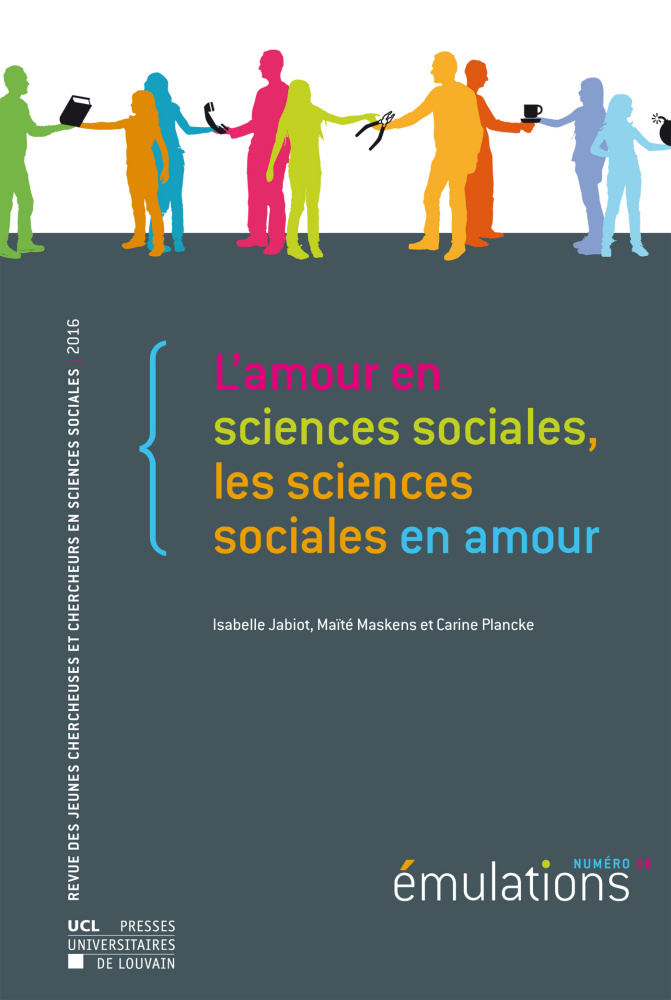Saisir la vie amoureuse par le croisement des méthodes
DOI:
https://doi.org/10.14428/emulations.018.003Keywords:
Love, Autoethnography, Grounded Theory, Disabilities, MethodologyAbstract
In this article, I would like to explain how the crossing of different data gathering methods can improve the study of romantic relationships. I will only talk about Western societies, my fieldwork taking place in France, USA (mainly California) and Spain (mainly Catalonia). Love is an inter-personal process commonly experienced, but it is also very personal and intimate. Grounded Theory offers a methodological frame for dealing with the variety of representations of love. But it does not suggest which are the best techniques for data gathering. On the contrary, it leaves the possibility of working on diversified data in order to explore the various dimensions of love. I shall expose here my own methodological path, following the chronological order of the study that I conduct for a PhD in Sociology on the subject of the love life of SCI men. It turned out that this order is also logical, going from public through private data, until intimate ones. They all complement each other disclosing how love life stories take place.
Downloads
Published
How to Cite
Issue
Section
License
Copyright (c) 2016 Revue Emulations

This work is licensed under a Creative Commons Attribution 4.0 International License.




.png)





